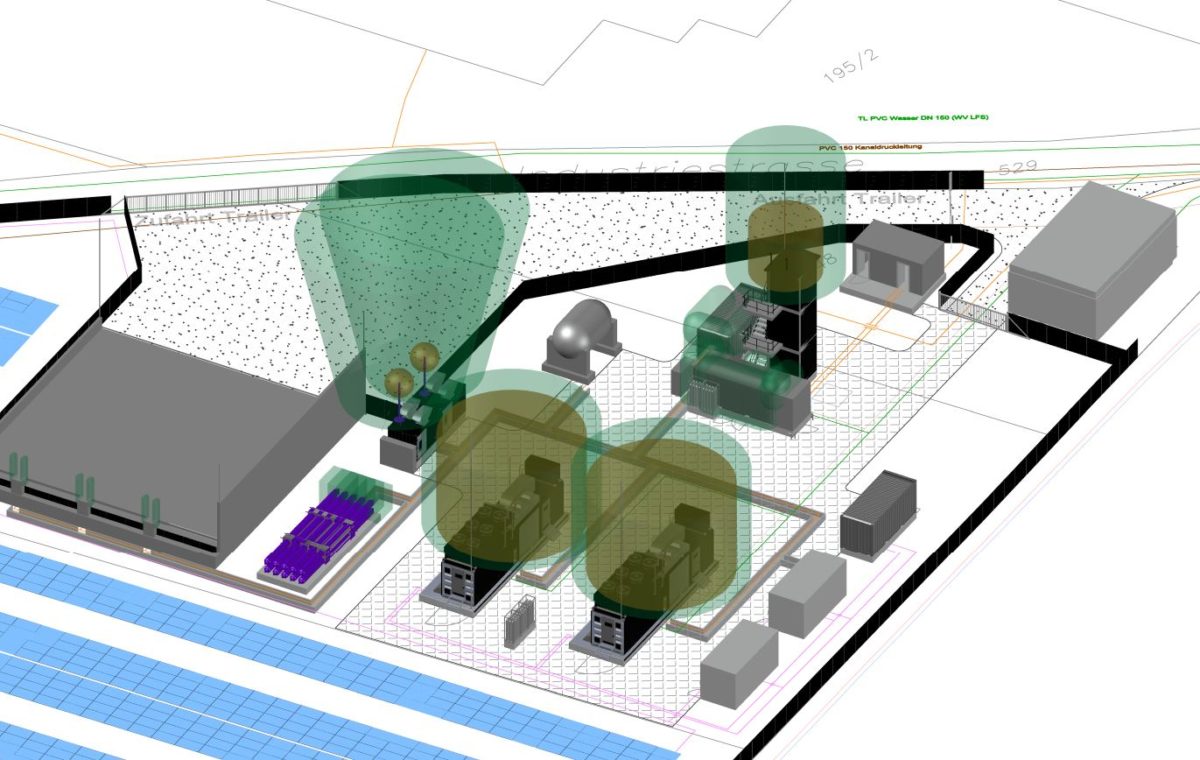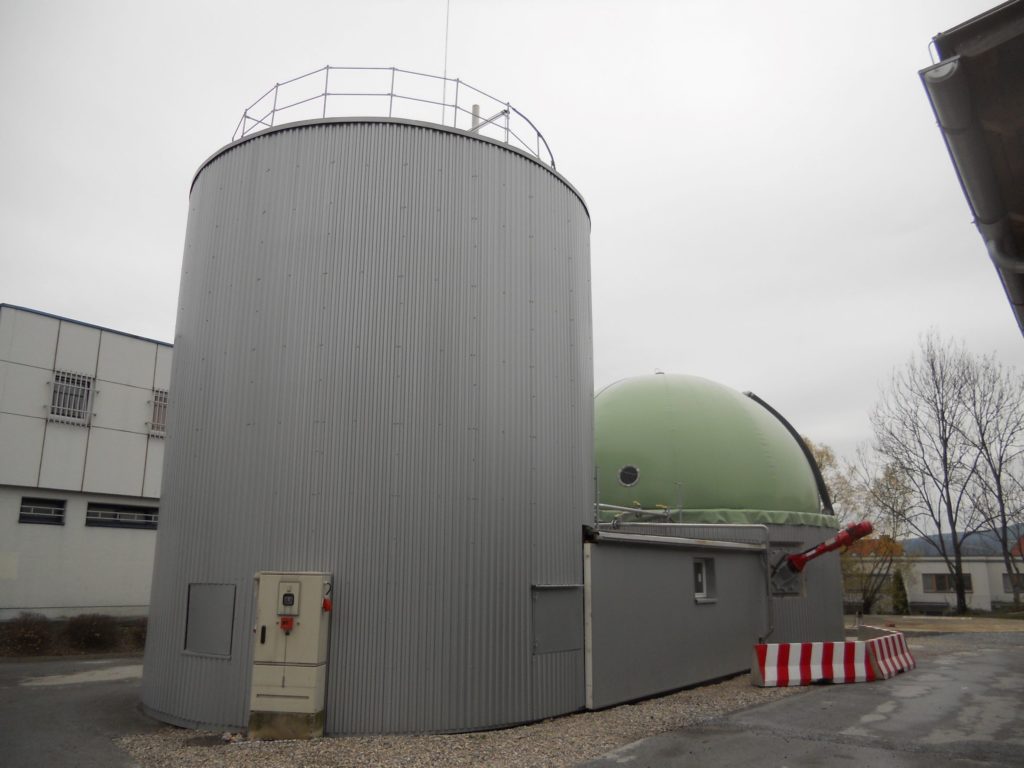Renewable Energies References

Energy is increasingly becoming a precious commodity. In order to lead a company or a community into a secure future today, energy optimisation must therefore always remain in the focus of all strategic considerations.
EnviCare ® has been working for years in the field of energy consulting as well as in the planning of plants for energy and gas generation from renewable sources. For instance since the year 2000 numerous clients have been supported in the implementation of plant approvals, constructive or functional tenders, as well as in the preparation of concepts and plans for agricultural, waste management and municipal biogas plants.
Planning of an electrolysis plant in Burgenland
Client: Electricity, gas and heating services company
Period: 2024-2025
Services: Process and structural basic engineering and preparation of approval documents for building, commercial and water law
The client is planning the construction of a large-scale power-to-gas plant for coupling hydrogen production from renewable energies with a load-flexible electrolysis plant for the production of synthetic, green hydrogen in order to link the mobility, industry and energy sectors on the path to decarbonization and energy dependency.
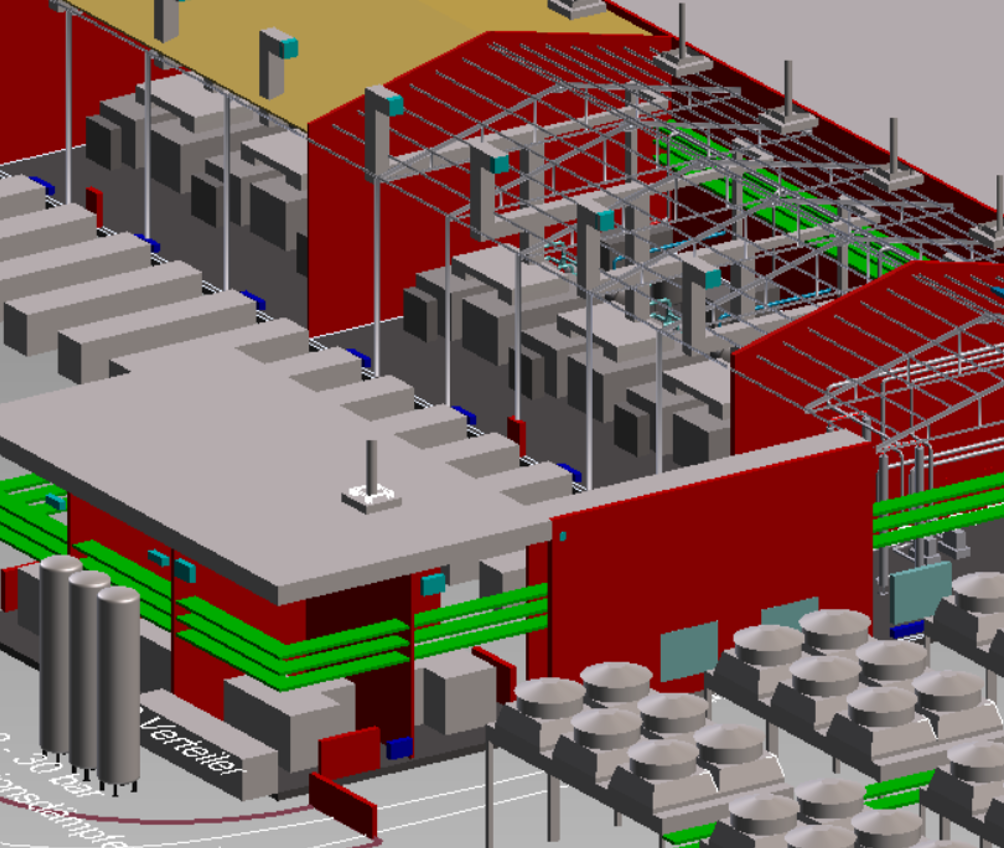
The green hydrogen produced in the electrolysis process is first compressed, stored and can then be transported through a hydrogen pipeline or by filling an H2 trailer.
Certified, green electricity from the electrical grid is used to supply power, but also optionally via underground cables through directly connected photovoltaic (PV) and wind power plants.
For the submission project, we prepared detailed technical descriptions and extensive planning documents in close cooperation with several specialized engineering firms. However, the system planning was carried out entirely without the involvement of system manufacturers and was therefore company-neutral.
Further information (file for download).
move2zero - Decarbonization of an urban public bus system
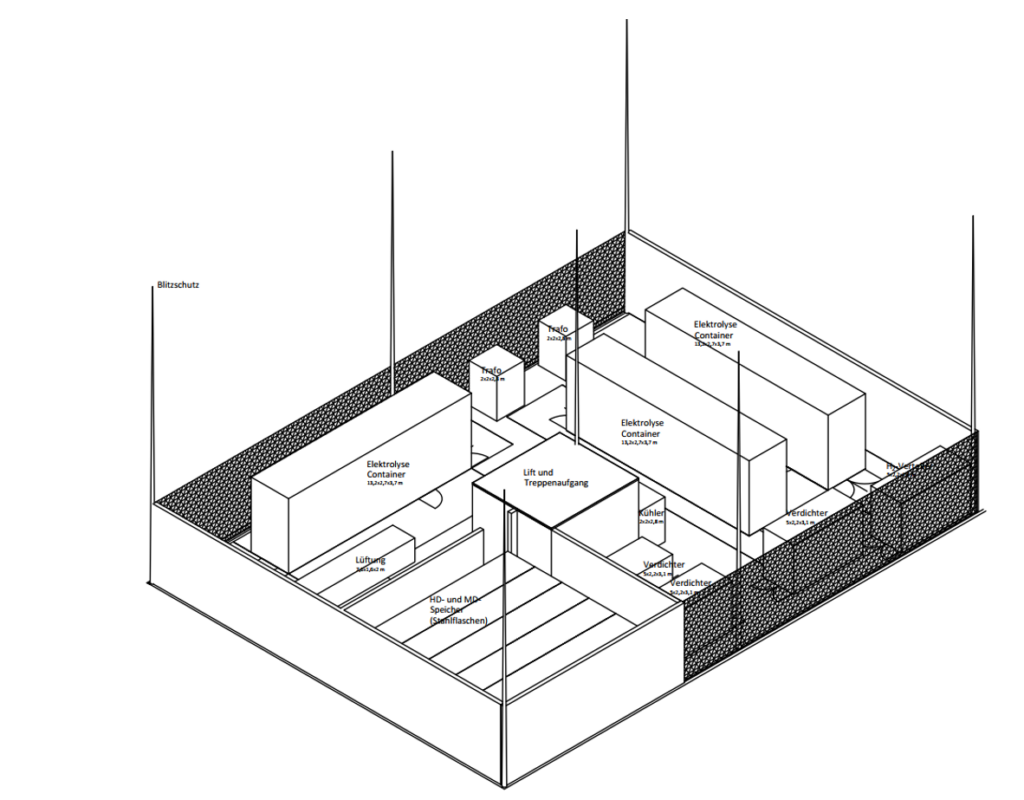
Client: Holding Graz – Kommunale Dienstleistungen GmbH
Period: 2022-2023
Services: Concept development, planning of the hydrogen plant
The move2zero project aims to completely decarbonize the urban bus system. Particular emphasis was placed on the use of emission-free drive technologies. The energy supply chains must also be optimized in the direction of renewable energies in order to do justice to this approach.
To this end, the life cycle emissions of the potential technologies were also recorded and compared.
EnviCare® was commissioned to design a hydrogen refueling station including a trailer refueling system for buses with fuel cells, including the hydrogen production required for operation by means of electrolysis.
You can find more information about this research project at www.move2zero.at.
Research project - Phase out of fossil gas
Client: EnergieZukunft WEIZplus, funded by the Federal Ministry for Climate Action, Environment, Energy, Mobility, Innovation and Technology (BMK)
Period: since 2023
Services: Detailed planning, optimization of energy and material flow utilization
The aim is to replace fossil gas with renewable energies and thus make an important contribution to the decarbonization of industry. The switch is being made using innovative technologies such as electrolysis and methanation, which enable a sustainable energy supply.
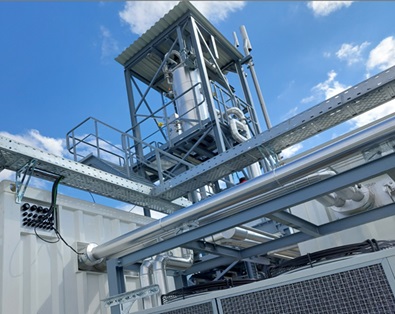
Our services include process engineering support and assistance in the areas of electrolysis, methanation, biogas plants and membrane distillation. By optimizing these technologies, we will make a significant contribution to achieving the climate neutrality targets and decarbonizing the WEIZplus region.
Further details on the project can be found on the homepage of the WEIZplus real-world laboratory.
Application for approval, construction and commissioning support for a power-to-gas plant with methanisation
Client : Electricity and gas service provider
Period : 2020-2022
Services : Preparation of the building and commercial approval documents incl. Fire and explosion protection concept, construction supervision
The company plans to construct and operate a power-to-gas plant to produce hydrogen with renewable energies by means of electrolysis using load-flexible methanation. This project also includes storage and distribution of renewable hydrogen and synthetically produced natural gas.
The hydrogen is generated, compressed and stored on-site, as well deliverd to the end user via a H 2-trailer filling station. The system is supplied with electrical energy on the one hand via a local PV system and on the other hand via the electrical grid. Since the planned 24/7 operation of the electrolyser with pure PV power is not possible, certified green power is obtained from the electrical grid. The biogas for the methanation is supplied by the nearby existing biogas plant (BGA).
For the submission project, extensive planning documents, a fire and explosion protection concept, a waste management concept and a detailed technical description of the plant were prepared.
- The plant is being built as part of a ” Renewable Gasfield ” research project.
- Article in Standard, 6./7. November 2021: ” Green light for green hydrogen “
- Conference contribution to ISEC 2022 (05-07 April 2022) in Graz: “Renewable gasfield – a holistic power-to-gas approach with PEM electrolysis and catalytic methanation ” (Mayr et al., 2022)
Small-scale biogas plant with food waste processing in a correctional facility
Client : Public Administration
Period : 2012-2014
Services : Planning of the modernization, approval, construction supervision, commissioning
For the Maria Lankowitz prison and for the public administration, the adaptation of the first Styrian biogas plant, which was built in 1984, was planned and the renewal of the official permit obtained. Particular importance was attached to the continued use of existing system parts and the sanitation system for leftovers, which was newly installed.
Detailed planning and execution documents were drawn up and the technical and commercial construction supervision and commissioning were carried out. The character of the penal institution and the fact that the neighborhood had moved closer in the meantime made the project particularly demanding.
Lecture at the “biogas13” in St. Pölten, 2013: “Particularities in the approval process for small biogas plants”
Concept for the anaerobic fermentation of industrial residues produced in the pharmaceutical industry
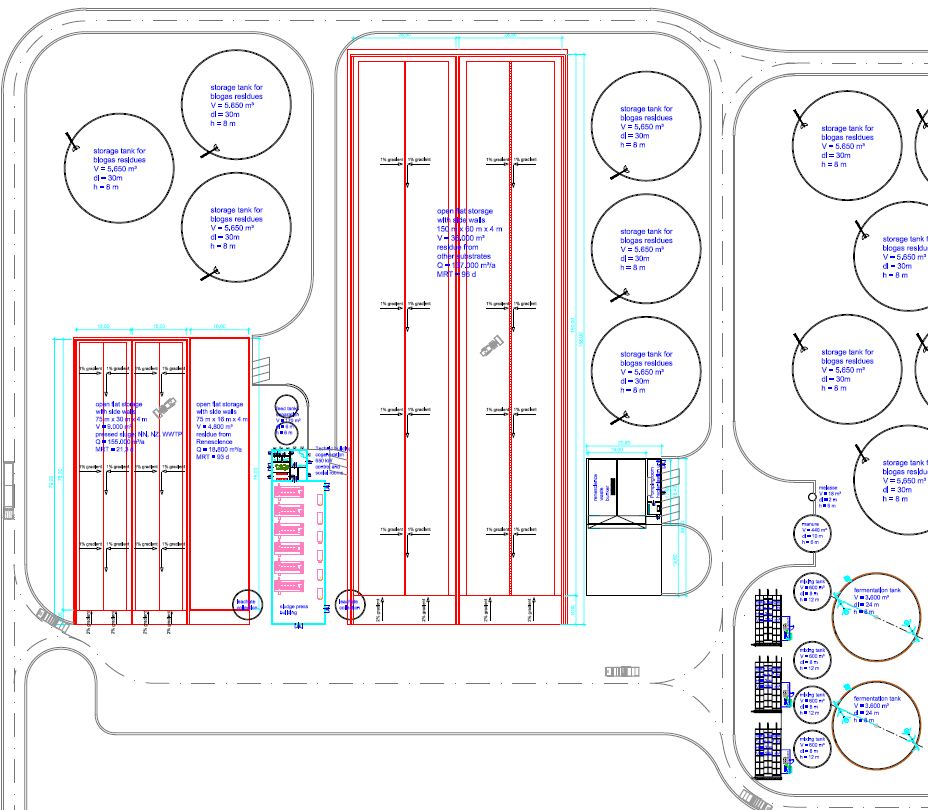
Client : International engineering office
Period : 2012
Services : Concept development
In 2012, an innovative concept for the anaerobic processing of industrial, commercial and municipal organic residues was developed on behalf of a large northern European engineering company, with a focus on the processing of large quantities of organic residues from pharmaceutical production.
Around 7.4 million Nm³ of methane are to be extracted annually from 270,000 tons of sludge-like waste.
Energy concept for a municipal wastewater treatment plant with co-fermentation
Client : Public Administration
Period : 2012
Services : Creation of an energy concept
The implementation of co-digestion in wastewater treatment plants, including the potential raw materials, was investigated using the example of a municipal wastewater treatment plant.. The potential for energy optimisation, the free digester capacity, the technical implementation and the economic efficiency were analysed. Regional conditions and green electricity grid supply were also taken into account
Lecture, 2013: ” Co-fermentation in wastewater treatment plants – raw material potential and implementation options”
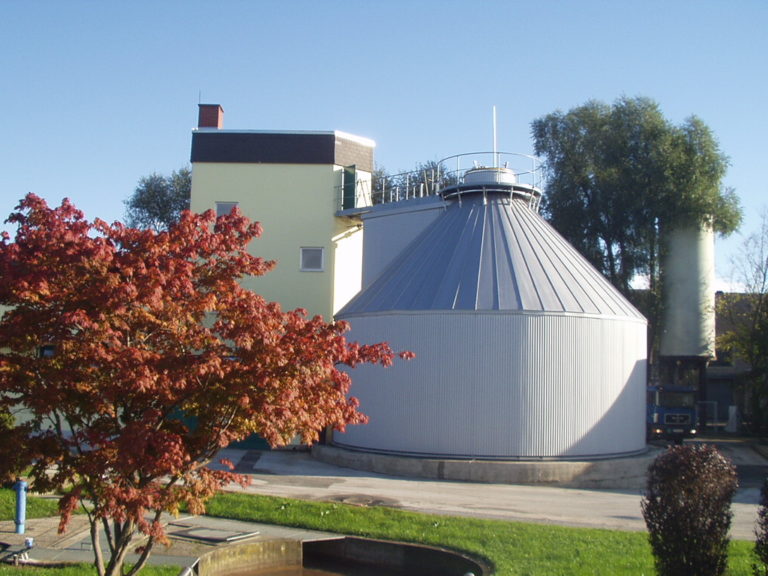
ECO Refinery featuring gas production and biomethane processing
Client : Austrian engineering office
Period : 2011-2012
Services : concept development, planning
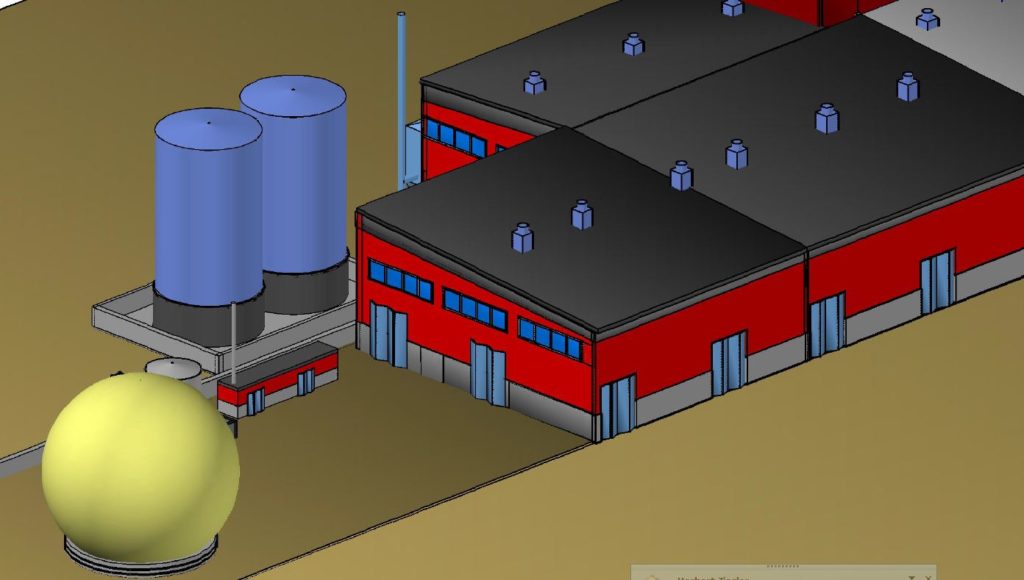
In 2011, a concept aimed at increasing the recycling rates of household waste was developed for a leading Finnish waste management company in response to the new EU requirements.
Rising raw material and energy prices and the Finnish paper and metal goods industry’s great interest in secondary raw materials are leading to a new path away from landfills through modern processing technology and anaerobic treatment of the organic contents.
An essential aspect of the project was the planning of the refinement of the biogas produced into biomethane.
Biogas plant for organic waste
Client : Austrian engineering office
Period : 2010-2011
Services : Approval planning
The approval planning included the construction of an additional fermentation line to the existing dry fermentation.
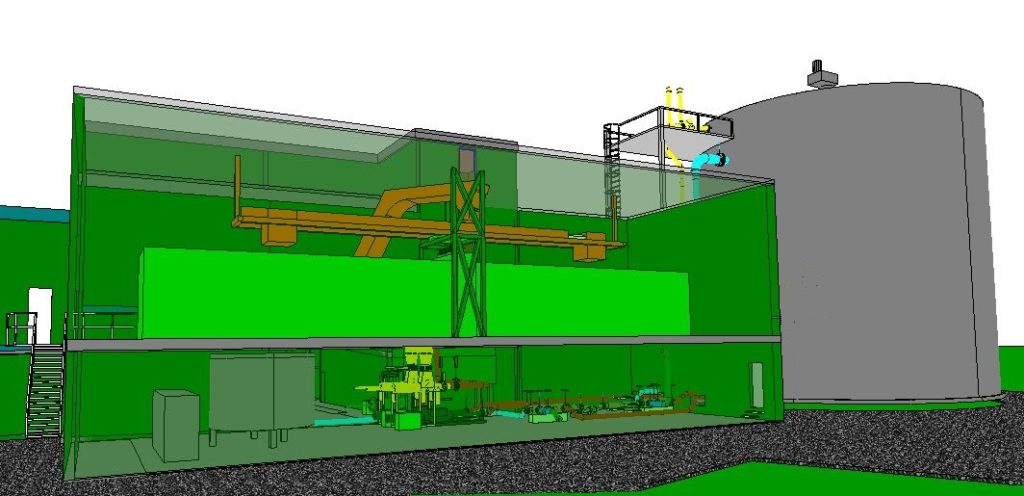
Newly planned were an intermediate bunker, a separation plant for biowaste, a CSTR fermenter, a manure separation, hygienisation and final storage, an exhaust air purification plant and a digestate drying plant instead of the composting plant. The additional fermentation line is suitable for the treatment of structureless biogenic waste and residues and thus complements the existing dry fermentation.
Energy analysis of an industrial company
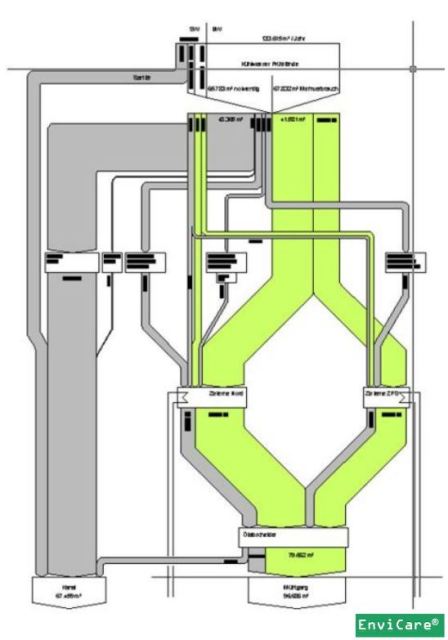
Client : Austrian industrial company
Period : 2007-2008
Services : Energy flow analysis and optimization
The company has a high demand for cooling power due to its processes. Furthermore, due to the prevailing climate conditions in summer, there is an additional need for cooling in order to air-condition the company’s buildings. Due to the special characteristics of the receiving water, there are additional requirements in terms of meeting demand depending on the location.
Energy self-sufficient wastewater treatment plant
Client : Wastewater Association
Period : 2006-2008
Services : Planning, waste management permit, implementation support, commissioning
At a municipal wastewater treatment plant, after adaptation to the state of the art, a co-digestion system for the transfer of liquid waste and a solar sewage sludge drying system were planned, approved according to waste legislation and implemented. Since then, the sewage treatment plant has been operated in an energy-balanced manner.
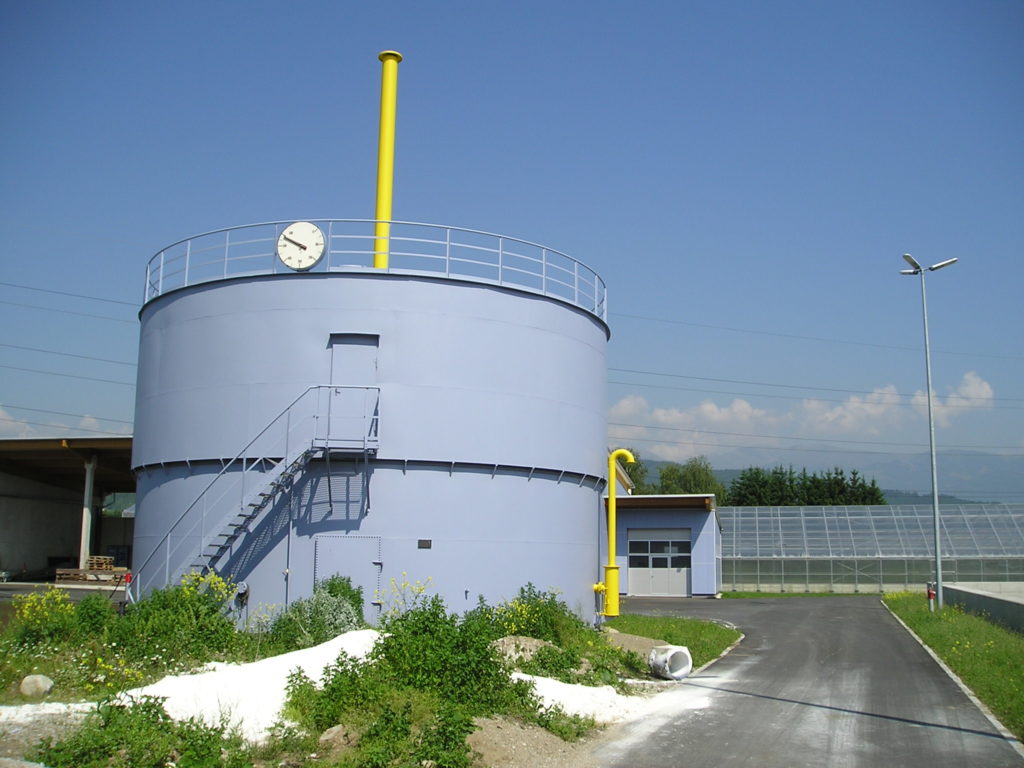
In summary, the positive effects are as follows:
- CO 2 savings totaling 1,790 t CO 2 /a
- Energy self-sufficiency of the wastewater treatment plant
- Massive reduction in CO 2 , methane and odor emissions
- Relieving the burden on the soil by ending the spreading of sewage sludge
- Relief of the sewage system and reduction of maintenance costs through direct transfer of liquids with a high organic content to the digestion system
- Reduction of the energy requirement of the aerobic stage through direct transfer of liquids with high organic content into the digestion process
- Reduced odor and methane emissions
This project was awarded the 2006 environmental protection prize by the Styrian provincial government.
Large agricultural biogas plants - 2 x 1,500 kW electric
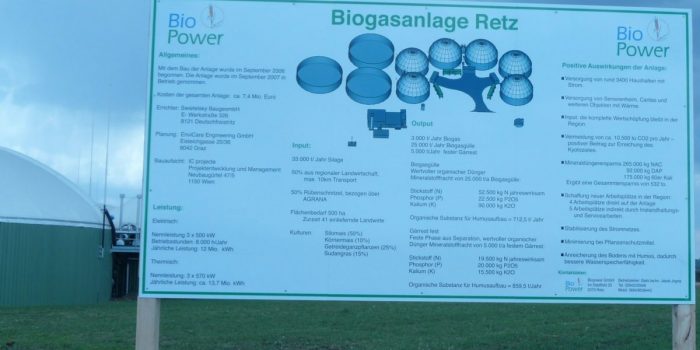
Client : Austrian industrial company
Period : 2006-2008
Services : Basic engineering, approval, detailed engineering, construction supervision, commissioning, operational support
This project, which we were in charge of planning, had a volume of € 15 million and generates an output of 2 x 1.5 MW el from the fermentation of renewable raw materials at two locations in Lower Austria.
Due to its high methane content, biogas is a valuable source of energy. Biogas can be converted into heat and electrical energy in a CHP thanks to the high energetic potential of methane. Since the biogas in the plants in question is produced from renewable resources, the carbon balance is neutral.
Large agricultural biogas plant - 1,000 kW electric
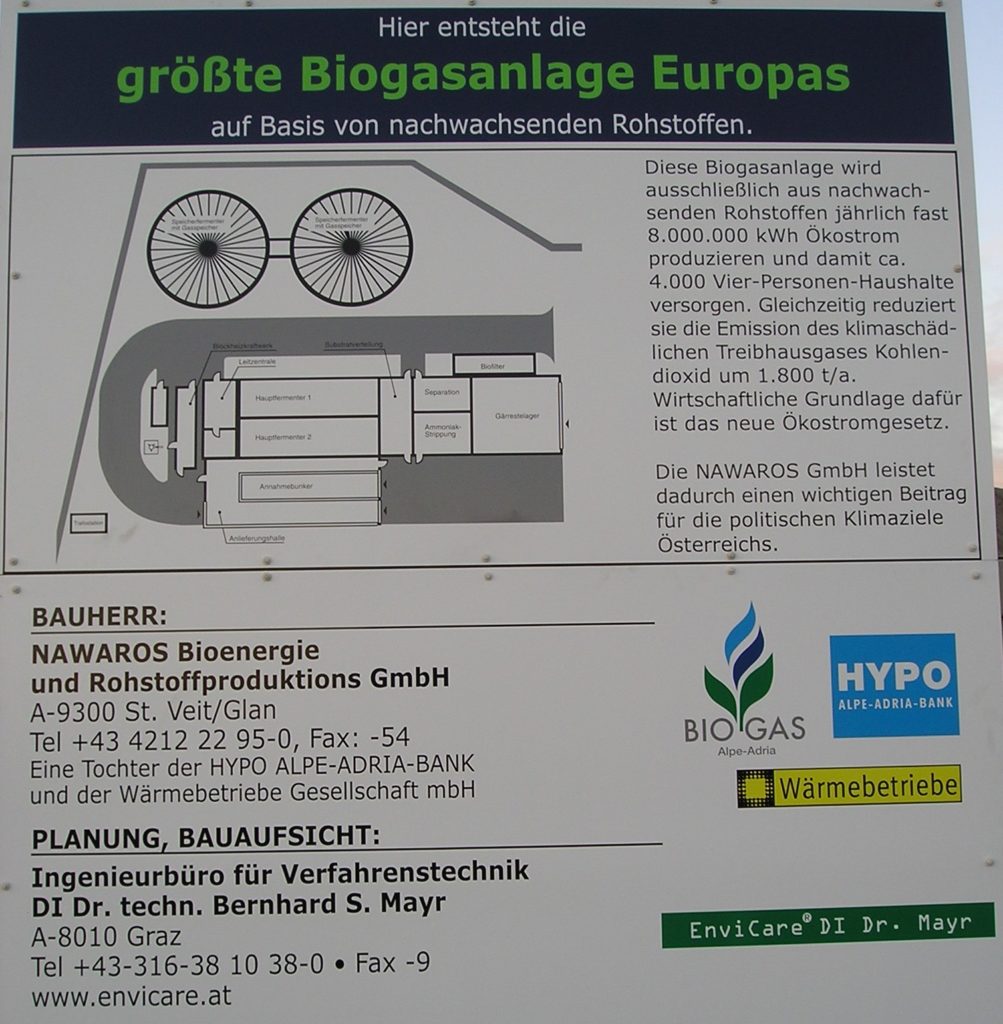
Client : Austrian industrial company
Period : 2002-2004
Services : Basic engineering, approval, construction supervision, commissioning support
In 2002, Europe’s largest biogas plant based on renewable resources was built here with an electrical output of 1,000 kW. We were responsible for the basic approval, construction supervision and commissioning supervision.
